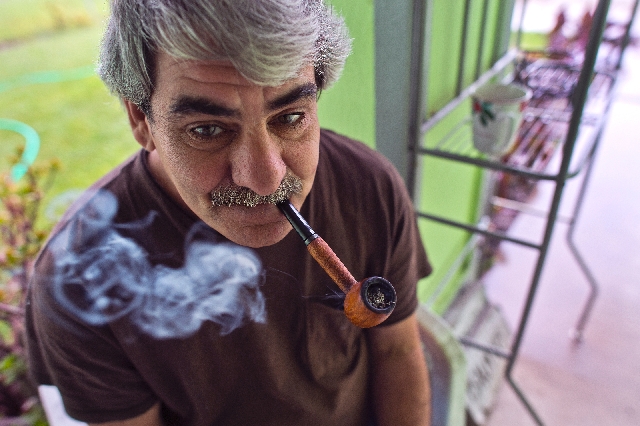Ticket to nowhere’s consequences continue
Reporters from the Sacramento Bee in California were shocked to discover Nevada’s practice of dumping mentally ill patients in other states.
After first ignoring the issue, then denying there was a problem for nearly two months, this past week Gov. Brian Sandoval finally acknowledged the state’s “Greyhound therapy” policy needed improvement. The Bee first reported that, since July 1, 2008, 1,508 patients at Nevada’s Rawson-Neal Psychiatric Hospital had exchanged treatment for bus fare back to family and friends in other states.
Trouble is, not all of them wound up returning to familiar territory, and the newspaper’s story of former Nevada mental patient James Flavy Coy Brown’s stranger-in-a-strange-land trip to Sacramento has reverberated nationally and spotlighted a distressing reality in the Silver State.
Las Vegan Ed Loughlin has followed the story and found the news anything but shocking. Beginning in 1975, Loughlin spent 18 years as a staff psychologist at the state’s mental health facility on West Charleston Boulevard before it was known as Rawson-Neal. Loughlin retired in 1993 — long before the state admitted putting those 1,508 mentally ill patients on buses.
Nevada has grown substantially since 1993, but one thing has been consistent when it comes to the mentally ill: the one-way Greyhound treatment.
“I started working there in 1975,” Loughlin says. “It’s been going on a long, long time.”
Although at times he questioned the practice, the fact is many of those in the state’s care weren’t Las Vegas residents. He recalls many of the troubled visitors wanted to return home to be closer to family, friends and treating physicians. But the process wasn’t exactly subtle, he says.
“We had people coming to Las Vegas from all over, and we got stuck with them,” Loughlin says. “We did have some kind of a rationalization to do this. But it could have been done in a much smoother, more humane way than to just down stick them on a bus.”
The exponential growth of Southern Nevada’s population coincided with a change in treatment philosophy in the mental health community. Later in his career, Loughlin recalls the dramatic increase in the use of psychotropic drugs to treat the mentally ill. Although the psychologist acknowledges medication has its place, he believes the widespread use of drug therapy can substantially complicate an already challenging duty.
As it is now, crowding was an issue. The budget was tight. Bed space could become limited very quickly. Faced with a challenging reality, the staff responded with the tools and facility available.
And one of those tools was an outbound Greyhound from the downtown station.
Although Loughlin stopped short of calling the facility “constantly overcrowded,” he admits, “We always had a full house.”
The bus-ticket treatment wasn’t a daily occurrence, but he estimates a patient took a trip every few weeks. When it was used, patients were never escorted to ensure they took their medications and actually reached their desired location, he says.
“They got a ticket and perhaps a lunch. I don’t recall,” he says. “They were just driven down to the bus station and dropped off.”
After much prodding, Gov. Sandoval said Nevada now plans to start escorting those patients to their final destination.
That way, I suppose, they technically won’t be dumped.
They’ll be delivered.
To the surprise of no one save out-of-state observers, Nevada ranks near the bottom, 41st, when it comes to spending on mental health services, doling out $68.32 per resident, according to statistics kept by the National Association of State Mental Health Program Directors Research Institute. In the last biennium, Nevada carved another 12.5 percent from state mental health’s already bare-bones budget.
So perhaps in a twisted way, the best thing that could happen to some of our community’s mentally ill is a fistful of medication and a bus ticket to somewhere better equipped and more willing to address their needs.
If Nevada officials aren’t up to treating mentally ill patients’ state of mind properly, when they go Greyhound the least they should do is get the state of origin right.
John L. Smith’s column appears Sunday, Tuesday, Wednesday and Friday. Email him at jsmith@reviewjournal.com or call 702-383-0295. Follow him on Twitter @jlnevadasmith.

















